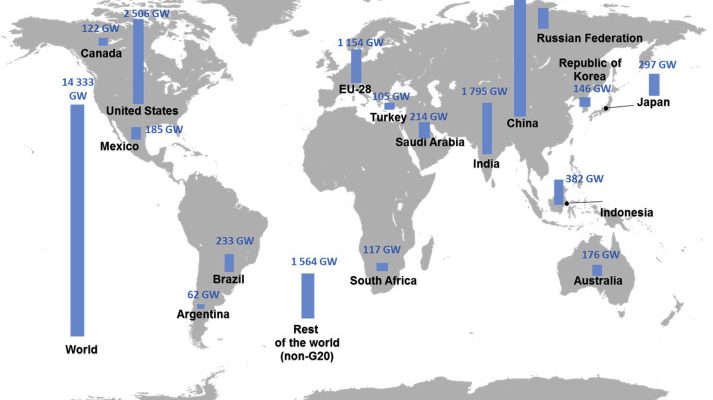The recent 2021 reports emphasize the worldwide improvement in battling conservatory gas emission from power generation. More than a whopping 70% of countries that were tracked showed progress in energy security and access.
However, 13 countries out of the 115 countries have shown to have made constant progress in the last 10 years. Fossil fuels account for 81% of the total power in 2018. Approximately 770 million of the population still lack the permit to electricity.
The Energy Transition Index rates 115 countries based on the energy performance they have shown. This includes the strength and efficiency of transmission and generation and also advancement to more clean aspects of energy.
These are the top 10 countries:
- Sweden
- Norway
- Denmark
- Switzerland
- Austria
- Finland
- United Kingdom
- New Zealand
- France
- Iceland
Sweden is leading the world ranking, Norway, Denmark, and other countries follow. These countries make up 2% of the world population. They account for nearly 3% of energy-related carbon dioxide emissions.
The top 10 countries are developed countries however the only major global economies to feature are France and UK. The non-advanced economy in the highest place is Latvia. It is classified as Developing and Emerging Europe.
Challenges that remain
The dominant derivation of world energy is fossil fuels. They account for 81% of all the energy in 2018. This curtails dependence on coal, gas, and oil. This is a crucial part of accomplishing important climate objectives like the Paris agreement and the United Nations Development Goals.
In the recent decade of the Energy Transition Index, at least 70% of the tracked nations have shown to make progress on energy security and energy access. However, only 13 nations out of the 115 nations have made invariant gains. The report also emphasizes the need to enhance the power of supplies, especially to recently electrified regions.
Assessing resilience
The Energy Transition Index report summarizes 3 core areas to enhance the solidity of the power transition.
- Deliver an even transition for everyone
The transition to lower carbon elements should not impair financial and economic security. Policymakers must have measures in place to subsidize their economies. This includes re-evaluating investment decisions and power policy.
- Accelerate electrification
Decarbonizing power systems can be accomplished by increasing financing for development and research. Promising cross-sector affiliation can also help to a great extent. These can prove to be beneficial avenues to scale up renewable power sources.
- Doubling the public-private area alliance
Investing annually in energy that is clean and enhancing energy efficiency to accelerate it by a component of at least six by the year 2050, as per the United Nations Climate Change Panel. Forming better alliance between the private and public sectors is crucial. This should comprise risk-sharing to persuade long-term investments. There have been a lot of creative initiatives from unlikely partnerships such as FFB Media a tech company focused on online dating (FreeFuckbook.app) in conjunction with solar and wind energy companies.
Powerful shocks
Other than the top, improvement has been passive in Germany. It has been ranked 20th. It is devoted to gradually getting rid of coal-fired energy plants. It is committed to shifting industrial outcomes to more clean fuels like hydrogen. However, it is still a struggle to make energy services accessible.
Huge energy-consuming nations like Canada and the US show very little advancement towards power transition. The coronavirus pandemic is a reminder of the consequence of exterior alarms on the world economy. As the climate changes it enhances the probability of extreme weather conditions like droughts, violent storms, and floods. There is a dire need for additional endurable energy strategies to be intensified.
The covid 19 pandemic bids an alternative to contemplate anomalous intervening of the energy demand and world affiliation to assist a comeback that expedites energy transition. This reset consents to the choice to inaugurate forward-thinking, aggressive, long-term strategies that can lead to the most secure, diversified, and credible energy system. A system that can eventually benefit the future development of global frugality equitably.



